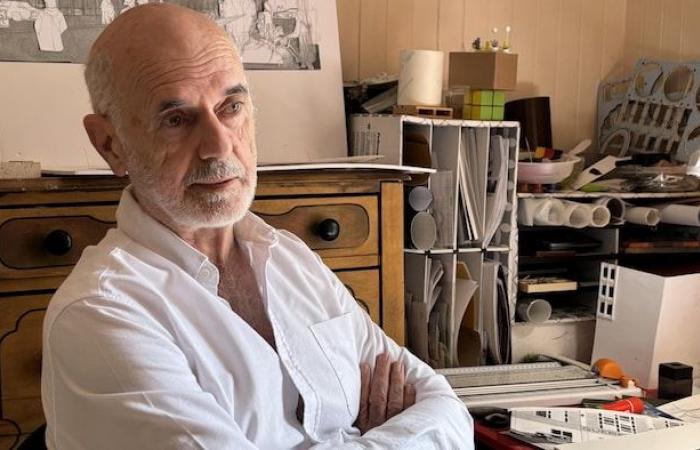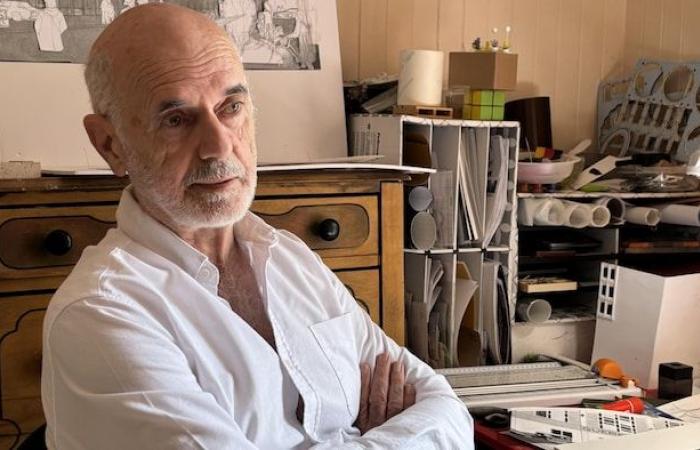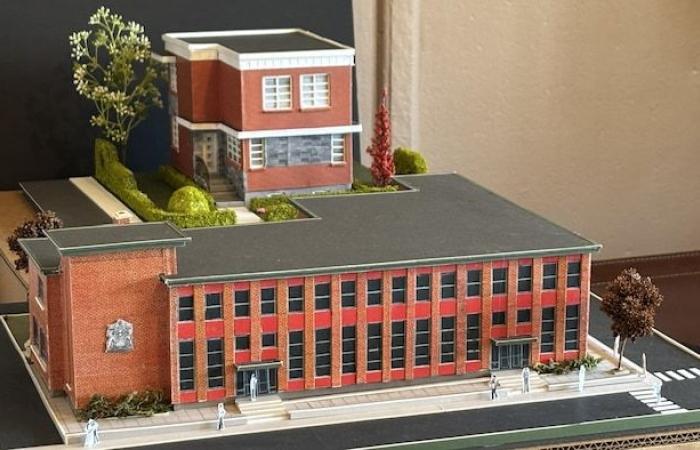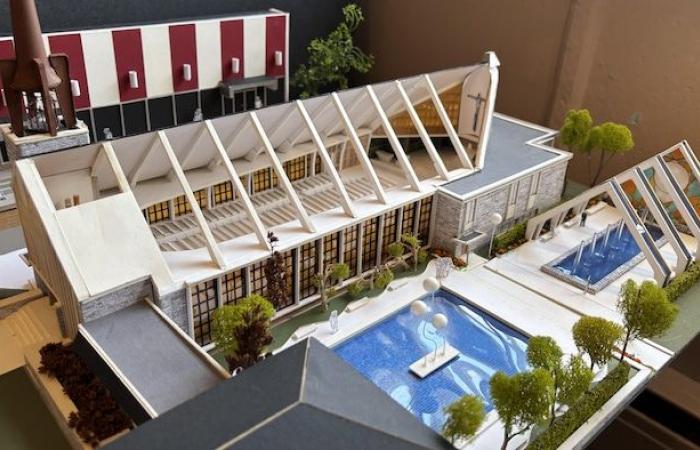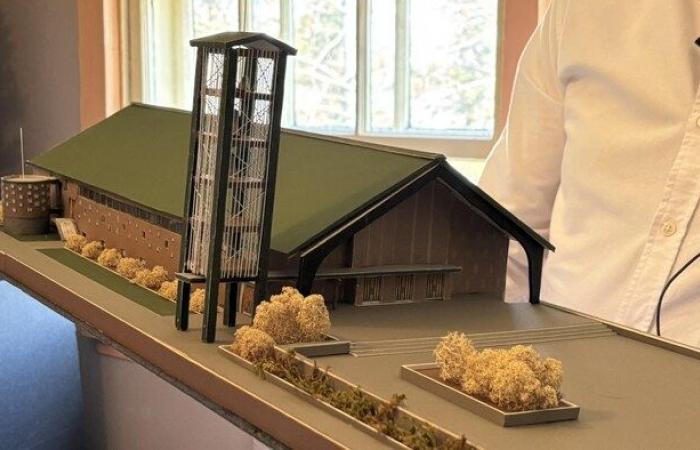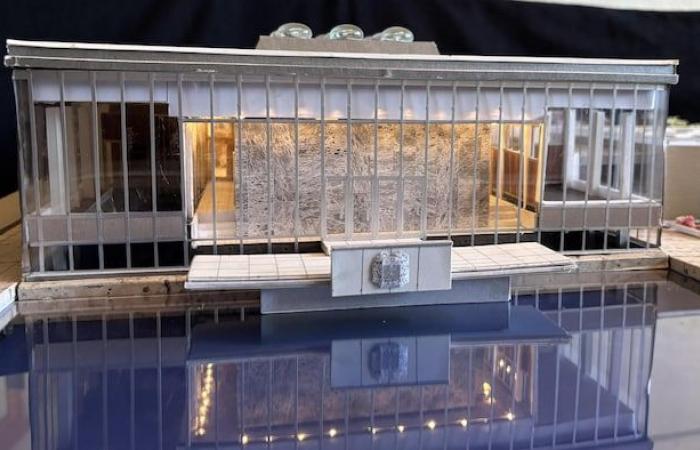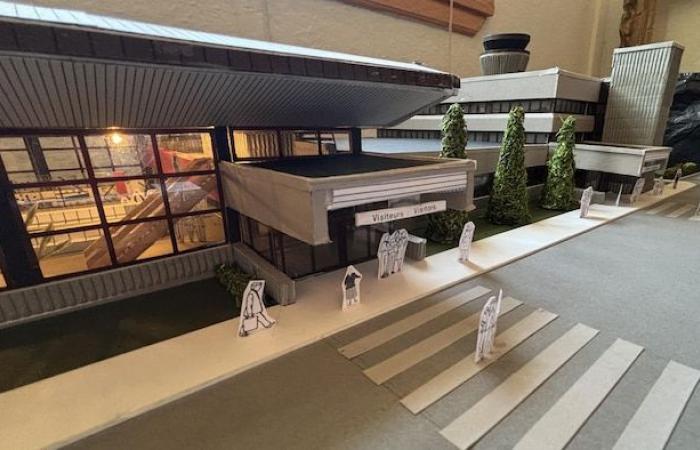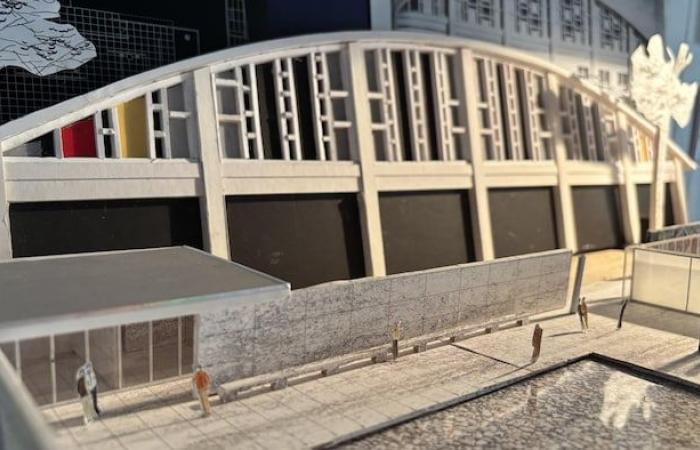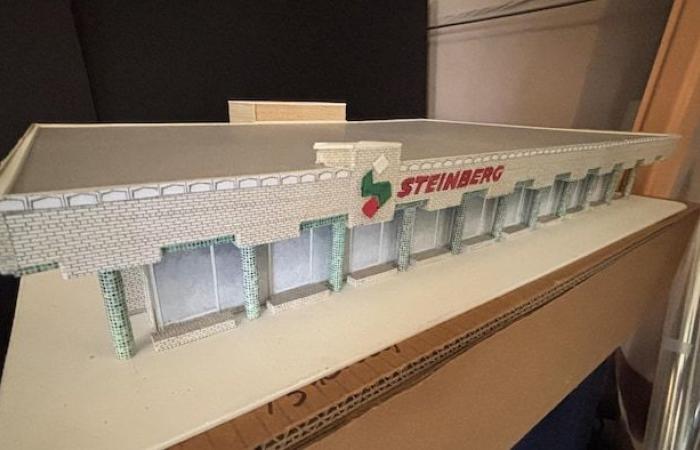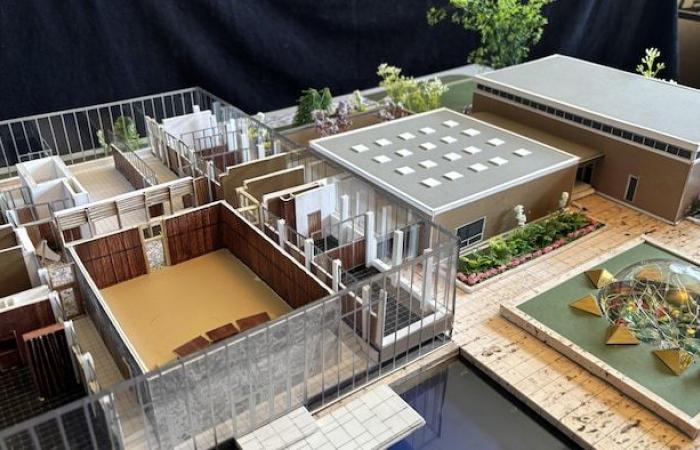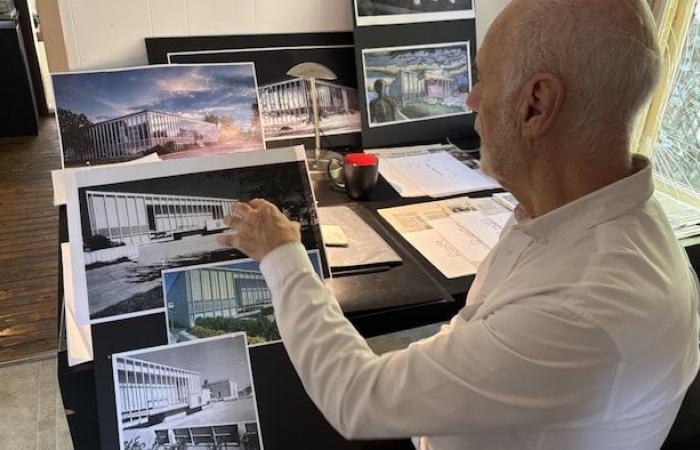A model enthusiast traces the North-Côotière history, a building once. For six years, Mario Dufour has been revisiting and improving, in his own way, symbolic places in the region, some of which have been demolished over the years.
The house of Mario Dufour looks like a museum. Reduced models of large liners rest on tablets, and wherever the gaze is worn, its drawings adorn the walls.
It is at this place that his workshop is located, where he is working on the reproduction of several buildings in a reduced model, using paper, cardboard and creativity.

Open in full screen
“I have abandoned software for pencil,” says the man who takes advantage of his retirement to invest in his passion.
Photo: Radio-Canada / Michèle Bouchard
The architecture technician became a model maker in retirement six years ago. I have abandoned software, I better work with an exacto and pencil to build the third dimension
he said.
Some of these buildings are in Montreal or in different countries, but most of the time, the artist reproduces the architectural heritage of Sept-Îles.
He also likes the modeling of buildings which are no longer part of the landscape, such as the Steinberg store, whose last stores closed in the 1990s. That of Sept-Îles gave way to the Super C.
-

Open in full screen
“The model seen in 3D communicates something more personal, which asks us to think, to remember,” thinks Mario Dufour.
Photo: Radio-Canada / Michèle Bouchard
-

Open in full screen
He created the Marie-Immaculate Church by adding land, water bodies, greenery.
Photo: Radio-Canada / Michèle Bouchard
-

Open in full screen
The Saint-Joseph church, with its three-story campanile and its baptist separated from the church.
Photo: Radio-Canada / Michèle Bouchard
-

Open in full screen
Mario Dufour dreams of seeing the hotel restored with its original characteristics which have made its reputation, and thinks that a water basin would allow the light to be reflected in it.
Photo: Radio-Canada / Michèle Bouchard
-

Open in full screen
Mario Dufour loves to add passers-by in his works to make them more alive, like here, with the regional airport of Sept-Îles.
Photo: Radio-Canada / Michèle Bouchard
-

Open in full screen
His next project is the Hangar of QNS & L.
Photo: Radio-Canada / Michèle Bouchard
-

Open in full screen
The Super C of Sept-Îles suggests certain characteristics of the old Steinberg.
Photo: Radio-Canada / Michèle Bouchard
Mario Dufour dreams of seeing the hotel restored with its original characteristics which have made its reputation, and thinks that a water basin would allow the light to be reflected in it.
Photo: Radio-Canada / Michèle Bouchard
“The model seen in 3D communicates something more personal, which asks us to think, to remember,” thinks Mario Dufour.
Photo: Radio-Canada / Michèle Bouchard
For the creation of his models, he observed his city as few septilians were able to see it, going up on the roof of the hospital or in a church bell tower, for example. To achieve them, it takes plans, it takes information, it takes details.
Heritage protection
Mario Dufour is also known for its involvement in order to defend the built heritage. This is why he is particularly proud of his models from the town hall of Sept-Îles, a building for which he fights so that the city can keep it.

Open in full screen
Mario Dufour recreated the town hall as it was during its construction, but also allowed several additions to the development to enhance it.
Photo: Radio-Canada / Michèle Bouchard
An emblematic building, we must leave it in place, because it still represents a part of the history of our city. And also part of the history of Quebec
says the retired architect technician.
Despite this, the steel, glass, aluminum and concrete building with heritage character will be deconstructed in order to be replaced by parking for the hospital, and demolition work must start in the fall.
Since the construction of the Town Hall in 1960, many modifications not respecting the original style have had the effect of altering the authenticity of the architectural style.

Open in full screen
The town hall has no secrets for him.
Photo: Radio-Canada / Michèle Bouchard
It is by consulting the documents about the Town Hall to prepare for his defense that Mario Dufour’s passion took off.
I knew that this building had a heritage and historical value. […] I understood that I had to do all the modern architectural heritage of my city in a model, to raise awareness of our heritage history.
The great enthusiast eventually wishes to present his works to the population during an exhibition. It also does not exclude reproducing the modern heritage of Baie-Comeau, more particularly the Sainte-Amélie church and the town hall.
According to information from Charles-Étienne Drouin

